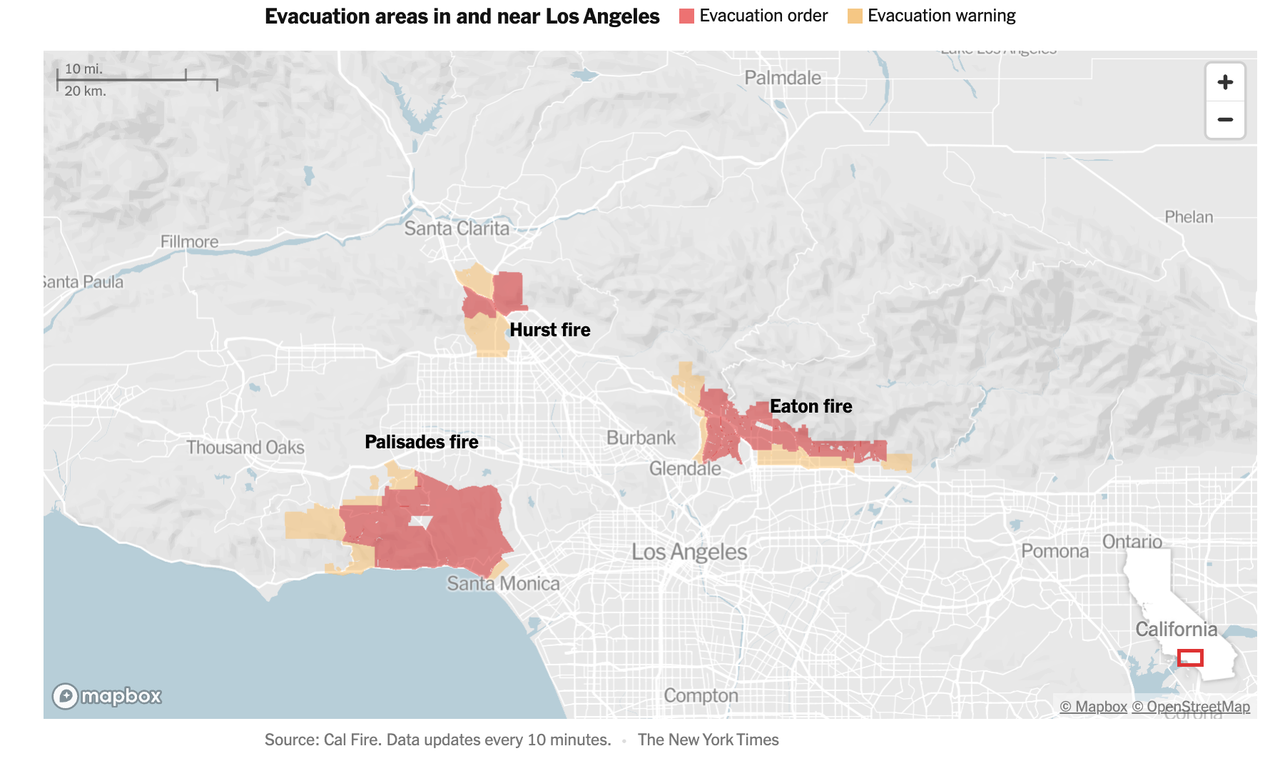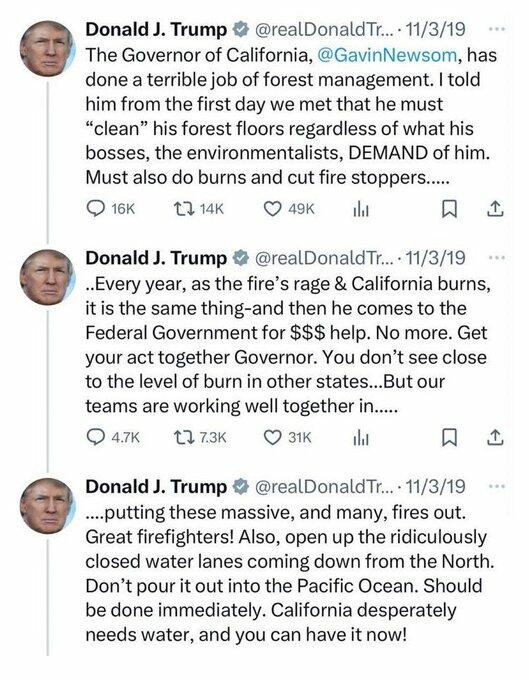Here's an absolutely frightening vision of social engineering. The truly frightening part is that it is not the future but the present and we didn't see it arrive! The silver lining is that the future is not written and neither is progress or what we call progress linear. Still, the changes which have taken place over the last few decades are mind blowing. I am personally shocked to see how most people are now almost completely removed from "nature" and direct experience of it.
People have lost a sense of proportion and experience of reality. Although this is not yet the "virtual" of science fiction, most people live in an almost completely artificial environment which has been built around them so slowly that they didn't realize it nor saw it coming. Think about the "office", the "mall", the time you spend behind a computer or hooked on your mobile. Almost every input nowadays comes through some device or is transformed somewhat before it reaches you. Now imagine what it will be when AI (very soon) adds another filter between you and reality.
Will people know what is true and what is not? What is real and what is not? Will they care? Now imagine the power of the people who control these filters. The trillion of dollars of market value of social media and technology companies where never based on the actual value of their products or services but upon the value of access to your mind and opinions. Soon this power will be used and our society will remove itself further from reality...
Authored by Joshua Stylman via substack,
"Humanity will attempt to overcome its limitations and arrive at fuller fruition," declared Julian Huxley in 1957, coining the term “transhumanism.”
By 2022, Yuval Noah Harari would announce its dark fulfillment:
"Humans are now hackable animals. The whole idea of free will... that's over. Today we have the technology to hack human beings on a massive scale. Everything is being digitized, everything is being monitored. In this time of crisis, you have to follow science. It's often said you should never allow a good crisis to go to waste, because a crisis is an opportunity to also do 'good' reforms that in normal times people would never agree to. But in a crisis, you have no chance, so you better do what we - the people who understand - tell you to do."
Like Truman Burbank in 'The Truman Show,' we inhabit a world where reality itself is increasingly engineered. And like Truman, most remain unaware of the extent of this engineering until shown the patterns. But unlike Truman's physical dome with its obvious cameras and artificial sets, our manufactured environment operates through sophisticated technological systems and invisible digital constraints. The mechanics of this reality engineering - from media manipulation to social programming - were explored in detail in our previous analysis. Now we turn to the driving force behind this manufactured world: technocracy, the system of control that makes such reality engineering possible on a global scale.
The technocratic architecture wasn't merely passed down through institutions - it flowed through bloodlines. At the heart of this dynastic web sits Thomas Henry Huxley, known as "Darwin's Bulldog," who helped establish scientific materialism as the new religion while serving on the influential Rhodes Round Table. His son Leonard carried this torch forward, while grandsons Aldous and Julian became key architects of the modern world order. These weren't random connections but rather the careful cultivation of multi-generational power networks.
The connections deepen through marriage and association. Charles Galton Darwin, grandson of Charles Darwin, wrote "The Next Million Years" in 1952, outlining population control through technological means. His son would later marry into the Huxley line, creating a powerful nexus of influence spanning science, culture, and governance.
This intergenerational project has evolved with technological capability. Where Rockefeller once declared “we need a nation of workers, not thinkers” while building his educational information factory today's technocrats face a different equation. As artificial intelligence eliminates the need for human labor, the focus shifts from creating compliant workers to managing population reduction - not through overt force, but through sophisticated social engineering.
BlackRock CEO Larry Fink recently made this shift explicit, explaining how AI and automation will reshape population dynamics: “In developed countries with shrinking populations... these countries will rapidly develop robotics and AI technology... the social problems that one will have in substituting humans for machines will be far easier in those countries that have declining populations.” His candid assessment reveals how technological capability drives elite agendas - as human labor becomes less necessary, population reduction becomes more desirable.
Climate change messaging, declining birth rates, and the normalization of euthanasia aren't random developments but logical extensions of this evolving agenda.
From World Brain to Digital Hive Mind
In 1937, a British science fiction writer imagined a future where all human knowledge would be instantly accessible to everyone. Today, we call it the Internet. But H.G. Wells saw more than just technology. "The world has a World Brain to which, ultimately, all knowledge is to be addressed," he wrote, "and it has a nervous system of road, railway, and air communication which is already beginning to bind mankind into a whole." His vision went beyond mere information sharing. Through "The Open Conspiracy," he called for "a movement of all that is intelligent in the world," explicitly advocating for technocratic governance by a scientific elite who would gradually assume control of society. “The Open Conspiracy must be, from its very inception, a world movement, and not merely an English movement or a Western movement. It must be a movement of all that is intelligent in the world.” Wells here laid out his schema for a class of educated, rational individuals who would lead this global transformation. Even his fictional work "Shape of Things to Come" reads like a blueprint, particularly in its description of how a pandemic might facilitate global governance.
This plan found its institutional expression through Julian Huxley at UNESCO. 'The general philosophy of UNESCO should be a scientific world humanism, global in extent and evolutionary in background,' he declared as its first Director-General. Through works like “Religion Without Revelation” (1927), Huxley didn't merely suggest replacing traditional faith - he outlined a new religious orthodoxy with Science as its deity and experts as its priesthood. This quasi-religious devotion to scientific authority would become the framework for today's unquestioning acceptance of expert proclamations on everything from vaccine mandates to climate policies. Most civilians lack the specialized knowledge to evaluate these complex technical issues, yet are expected to embrace them with religious fervor - “trust the science” becoming the modern equivalent of “trust in faith.” This blind deference to scientific authority, precisely as Huxley envisioned, has transformed science from a method of inquiry into a system of belief.
The Huxley family provided the intellectual architecture for this transformation. Julian Huxley's "scientific world humanism" at UNESCO established the institutional framework, while his brother Aldous revealed the psychological methodology. In his 1958 interview with Mike Wallace, Aldous Huxley explained how rapid technological change could overwhelm populations, making them "lose their capacity for critical analysis." His description of "control through overwhelm" perfectly describes our current state of constant technological disruption, where people are too disoriented by rapid change to effectively resist new control systems.
Most crucially, Huxley emphasized the importance of "gradual" implementation -
suggesting that by carefully pacing technological and social changes,
resistance could be managed and new control systems normalized over
time. This strategy of gradualism, mirroring the Fabian Society's
approach, can be seen in everything from the slow erosion of privacy
rights to the incremental implementation of digital surveillance
systems. His warning about psychological conditioning through media
foreshadowed today's social media algorithms and digital behavior
modification.
Zbigniew Brzezinski's "Between Two Ages"
expanded this framework, describing a coming "technetronic era" marked
by surveillance of citizens, control through technology, manipulation of
behavior, and global information networks. He was remarkably
explicit about this blueprint: “The technetronic era involves the
gradual appearance of a more controlled society. Such a society would be
dominated by an elite, unrestrained by traditional values... Soon it
will be possible to assert almost continuous surveillance over every
citizen and maintain up-to-date complete files containing even the most
personal information about the citizen. These files will be subject to
instantaneous retrieval by the authorities.” Today, many might recognize
his daughter Mika Brzezinski as co-host of MSNBC's Morning Joe - while
her father shaped geopolitical theory, she would go on to influence
public opinion through media, demonstrating how establishment influence
adapts across generations
Wells' framework of a “World
Brain” - an interconnected global information network - has become a
reality through the rise of artificial intelligence and the Internet.
This centralization of knowledge and data mirrors the technocratic
ambition for an AI-powered global society, as exemplified by initiatives
like the AI World Society (AIWS).
George Orwell's predictions have become our daily reality:
telescreens tracking our movements have become smart devices with
always-on cameras and microphones. Newspeak limiting acceptable speech
emerged as content moderation and political correctness. The memory hole
erasing inconvenient facts operates through digital censorship and
"fact-checking." Thought crime punishing wrong opinions appears as
social credit systems and digital reputation scores. Perpetual war
maintaining control continues through endless conflicts and the "war on
terror."
Consider how major publications systematically preview coming technological transformations: mainstream media's promotion of the "never offline" mentality preceded widespread adoption of wearable surveillance devices that now converge human biology and digital technology - what's now called the "Internet of Bodies.”
These aren't random predictions - they represent coordinated efforts to acclimate the public to increasingly invasive technologies that blur the boundaries between the physical and digital realms. This pattern of previewing control systems through mainstream media serves a dual purpose: it normalizes surveillance while positioning resistance as futile or backward-looking. By the time these systems are fully implemented, the public has already been conditioned to accept them as inevitable progress.
If Orwell showed us the stick, Huxley revealed the carrot. While Orwell warned of control through pain, Huxley predicted control through pleasure. His dystopia of genetic castes, widespread mood-altering drugs, and endless entertainment parallels our world of CRISPR technology, psychiatric medication, and digital addiction.
While the theoretical foundations were established through visionaries like Wells and Huxley, implementing their ideas required institutional frameworks. The transformation from abstract concepts to global control systems would emerge through carefully crafted networks of influence.
From Round Tables to Global Governance
When Cecil Rhodes died in 1902, he left more than just a diamond fortune. His will outlined a roadmap for a new kind of empire - one built not through military conquest, but through the careful cultivation of future leaders who would think and act as one. Carroll Quigley, in his influential work "Tragedy and Hope," provided insider insights into the power structures he observed, noting how “the powers of financial capitalism had another far-reaching aim, nothing less than to create a world system of financial control in private hands able to dominate the political system of each country and the economy of the world as a whole. This system was to be controlled in a feudalist fashion by the central banks of the world acting in concert, by secret agreements arrived at in frequent private meetings and conferences.”
This would manifest through a network based on human connection and institutional influence. Rhodes envisioned creating an elite network that would extend British influence globally while fostering Anglo-American cooperation. His doctrine wasn't just about political power - it was about shaping the very mechanisms through which future leaders would think and operate.
The machinery of global control has undergone a profound transformation since Rhodes' time. The 1.0 model of globalism operated through nation-states, colonialism, and the explicit structures of the British Empire. Today's Globalism 2.0 operates through corporate and financial institutions, steering power toward centralized global governance without the need for formal empire. Organizations like the Bilderberg Group, Council on Foreign Relations, Trilateral Commission, and Tavistock Institute have spent 50 to 100 years guiding global programs and policies, gradually centralizing power, influence, and resources among an increasingly concentrated elite. The Bilderberg Group, in particular, has facilitated private discussions among influential political and business leaders, shaping high-level decision-making behind closed doors.
The Rhodes Scholarships served as more than an educational program - they created a pipeline for identifying and cultivating future leaders who would advance this technocratic agenda. The Round Table Movement that emerged from Rhodes' blueprint would establish influential groups in key countries, creating informal networks that would shape global policy for generations.
From these Round Tables emerged key institutions of global governance: the Royal Institute of International Affairs (Chatham House) in London and the Council on Foreign Relations in the United States. These organizations wouldn't merely discuss policy - they would create the intellectual framework through which policy could be imagined. Their members would go on to establish the League of Nations, the United Nations, and the Bretton Woods system.
Alice Bailey's vision, articulated through Lucis Trust (founded in 1922 as Lucifer Publishing Company before being renamed in 1925), foreshadowed and helped shape aspects of today's global institutions. While not directly establishing the UN, Lucis Trust's influence can be seen in the organization's spiritual and philosophical foundations, including the Meditation Room at UN headquarters. In “The Externalization of the Hierarchy”, written over several decades and published in 1957, Bailey outlined a vision for global transformation that parallels many current UN initiatives. Her writings described changes we now see manifesting: reformed education systems promoting global citizenship, environmental programs restructuring society, spiritual institutions merging into universal beliefs, and economic systems becoming increasingly integrated. Most notably, she specified 2025 as the target date for this “externalization of the hierarchy” - a timeline that aligns with many current global initiatives, including the UN's 2030 Agenda for Sustainable Development.
Today, this gameplan manifests through the World Economic Forum, where Klaus Schwab, mentored by Henry Kissinger, implements these historical technocratic guides. As Kissinger stated in 1992, “A New World Order will emerge. The only question is whether it will arise out of intellectual and moral insight, and by design, or whether it will be forced on mankind by a series of catastrophes.” Klaus Schwab's WEF actively shapes this order, “penetrating cabinets” through its Young Global Leaders program. As Schwab himself boasted, “What we are very proud of is that we penetrate the global cabinets of countries” - a claim evidenced by the fact that multiple cabinet members in countries like Canada, France, Germany, New Zealand, as well as U.S. politicians such as Gavin Newsom, Pete Buttigieg, and Huma Abedin had gone through the WEF's leadership initiatives.
Programming the Future: Selling the Cage
Edward Bernays, nephew of Sigmund Freud, developed the psychological framework that would become modern marketing and social media manipulation. This family connection was no coincidence - Freud's psychological insights about human nature would be weaponized by his nephew into tools for mass manipulation. This pattern of family influence continues today - the co-founder of Netflix, Marc Bernays Randolph, is Edward Bernays' great-nephew, demonstrating how these bloodlines continue shaping our cultural consumption. The techniques of “engineering consent” and managing public opinion that Edward Bernays pioneered now operate through digital platforms at unprecedented scale, setting the stage for the phenomenon of predictive programming.
Predictive programming operates by presenting future control systems as entertainment, normalizing them before implementation. When reality mirrors fiction, the public has been pre-conditioned to accept it. This isn't mere coincidence - these narratives systematically prepare populations for planned transformations.
As theorist Alan Watt explains, “predictive programming works to create a psychological conditioning in our minds through a Pavlovian-like process. By repeatedly exposing people to future events or control systems through entertainment media, the responses become familiar and those events are then accepted as natural occurrences when they manifest in reality.”
Hollywood serves as the primary vehicle for normalizing technocratic ideas. Movies and TV shows consistently present future scenarios that later become reality:
Minority Report" (2002) predicted personalized advertising and gesture-controlled interfaces → Now we have targeted ads and touchless controls
Iron Man" (2008) normalized brain-computer interfaces for everyday use → Now we see Neuralink and other neural implant initiatives gaining public acceptance
Black Mirror" (2011-) episodes about social credit scores → China implemented similar systems
Contagion" (2011) eerily predicted pandemic responses → Many of its scenes played out in real life
The Social Network" (2010) portrayed tech disruption as inevitable and leaders as brilliant outsiders → Leading to widespread technocrat worship
Person of Interest" (2011) depicted mass surveillance through AI → Now we have widespread facial recognition and predictive policing
"Her" (2013) depicted an intimate relationship between a human and an AI assistant, presaging the erosion of traditional human bonds
"Elysium" (2013) depicted technological class division → Now we see increasing discussion of transhuman enhancement limited to elites
"Transcendence" (2014) explored human consciousness merging with AI → Now we see Neuralink and other brain-computer interface initiatives advancing rapidly
“Ready Player One" (2018) normalized full digital immersion and virtual economy → Now we see metaverse initiatives and digital asset markets
Even children's entertainment plays a role. Movies like WALL-E predict environmental collapse, while children’s films like Disney/Pixar’s Big Hero 6 show technology "saving" humanity. The message remains consistent: technology will solve our problems, but at the cost of traditional human relationships and freedoms. This systematic conditioning through media would require an equally systematic institutional framework to implement at scale.
While Bernays and his successors developed the psychological framework for mass influence, implementing these ideas at scale required a robust institutional architecture. The translation of these manipulation techniques from theory to practice would emerge through carefully constructed networks of influence, each building upon the other's work. These networks wouldn't just share ideas - they would actively shape the mechanisms through which future generations would understand and interact with the world.
The Institutional Network
The technocratic map required specific institutions for its implementation. The Fabian Society, whose coat of arms tellingly featured a wolf in sheep's clothing and a tortoise logo representing their motto of "when I strike, I strike hard" and "slow and steady change", established mechanisms for gradual social transformation. This gradualist approach would become a template for how institutional change could be implemented without triggering resistance.
The translation of technocratic theory into global policy required institutional muscle. Organizations like the Rockefeller and Ford Foundations didn't merely support these initiatives - they systematically restructured society through strategic funding and policy implementation. The Rockefeller Foundation's influence over medicine mirrored Ford's reshaping of education, creating interconnected mechanisms of control over health and knowledge. These foundations operated as more than philanthropic organizations - they served as incubators for technocratic governance, carefully cultivating networks of influence through grants, fellowships, and institutional support. Their work demonstrated how apparent charity could mask profound social engineering, a pattern that continues with today's tech philanthropists.
Bill Gates exemplifies this evolution - his foundation wields unprecedented influence over global health policy while simultaneously investing in digital ID systems, synthetic foods, and surveillance technologies. His acquisition of vast agricultural holdings, becoming America's largest private farmland owner, parallels his control over global seed preservation and distribution systems. Like Rockefeller before him, Gates uses philanthropic giving to shape multiple domains - from public health and education to agriculture and digital identity. His transhumanist vision extends to patenting human-computer interfaces, positioning himself to influence not just our food and health systems, but potentially human biology itself through technological integration. Through strategic media investments and carefully managed public relations, these activities are typically portrayed as charitable initiatives rather than exercises in control. His work demonstrates how modern philanthropists have perfected their predecessors' methods of using charitable giving to engineer social transformation.
The transformation of medicine offers a stark example of how control systems evolved. Jonas Salk, celebrated as a humanitarian for his vaccine work, revealed darker motivations in books like "The Survival of the Wisest" and "World Population and Human Values: A New Reality," which explicitly advocated eugenics and depopulation agendas. This pattern of apparent philanthropy masking population control repeats throughout the century, forcing us to reconsider many of our assumed heroes of progress.
The weaponization of social division emerged through careful academic study. Margaret Mead and Gregory Bateson's work in Papua New Guinea, particularly their concept of schismogenesis (the creation of social rifts), provided the theoretical framework for modern social engineering. While presented as neutral anthropological research, their studies effectively created a manual for societal manipulation through the exploitation of internal strife. Bateson's "Steps to an Ecology of Mind" revealed how communication patterns and feedback loops could shape both individual and collective behavior. The concept of schismogenesis described how initial separations could be amplified into self-reinforcing cycles of opposition - a process we now see deliberately deployed through social media algorithms and mainstream news programming.
Matt Taibbi's “Hate Inc.” provides a powerful contemporary analysis of how these principles operate in our digital age. What Bateson observed in tribal cultures, Taibbi documents in today's media ecosystem - the systematic exploitation of division through algorithmic content delivery and engagement metrics, creating an industrialized form of schismogenesis that drives social control through manufactured conflict, even as the establishment “uniparty” converges on key issues like foreign policy.
The Royal Institute of International Affairs and Council on Foreign Relations shaped international policy frameworks, while the Tavistock Institute developed and refined psychological operations techniques. The Frankfurt School reshaped cultural criticism, and the Trilateral Commission guided economic integration. Each of these organizations serves multiple roles: incubating technocratic ideas, training future leaders, networking key influencers, developing policy frameworks, and engineering social change.
Bertrand Russell's "The Impact of Science on Society" provided the blueprint for modern educational control. "The subject which will be of most importance politically is Mass Psychology," he wrote. "Its importance has been enormously increased by the growth of modern methods of propaganda. Of these the most influential is what is called 'education'." His frank explorations of population control and scientific governance find expression in contemporary discussions about expert rule and "following the science." These ideas now manifest in standardized digital education systems and AI-driven learning platforms.
The Club of Rome's “Limits to Growth”
deserves special attention for establishing the intellectual framework
behind current environmental and population control initiatives. Their
stark declaration that “the common enemy of humanity is man” revealed
their true agenda. As they explicitly stated in”'The First Global Revolution”
(1991): 'In searching for a new enemy to unite us, we came up with the
idea that pollution, the threat of global warming, water shortages,
famine and the like would fit the bill... All these dangers are caused
by human intervention and it is only through changed attitudes and
behavior that they can be overcome. The real enemy then, is humanity
itself.’ Their predictions of resource scarcity weren't just about
environmental concerns - they provided the foundation for today's
climate change messaging and population control initiatives, enabling
control through both resource allocation and demographic engineering.
These institutional structures didn't remain static - they evolved with technological capability. What
began as physical systems of control would find their ultimate
expression in digital infrastructure, achieving a level of surveillance
and behavioral modification that earlier technocrats could only imagine.
Modern Implementation: The Convergence of Control Systems
Modern surveillance architecture pervades every aspect of daily life. Smart devices monitor millions of people's sleep patterns and vital signs while AI assistants guide our daily routines under the guise of convenience. Just as Truman's world was controlled through hidden cameras and staged interactions, our digital environment monitors and shapes our behavior through devices we willingly embrace. News and information flow through carefully curated algorithmic filters that shape our worldview, while workplace surveillance and automation increasingly define our professional environments. Our entertainment arrives through recommendation systems, our social interactions are mediated through digital platforms, and our purchases are tracked and influenced through targeted advertising. Where Truman's world was controlled by a single producer and production team, our engineered reality operates through integrated frameworks of technological control. The infrastructure of technocracy - from digital surveillance to behavioral modification algorithms - provides the practical means for implementing this control at scale, far beyond anything depicted in Truman's artificial world.
Like Truman's carefully controlled environment, our digital world creates an illusion of choice while every interaction is monitored and shaped. But unlike Truman's physical cameras, our surveillance system is invisible - embedded in the devices and platforms we voluntarily embrace. Even our health decisions are increasingly guided by “expert” algorithms, our children's education becomes standardized through digital platforms, and our travel is continuously monitored through digital tickets and GPS. Most insidiously, our money itself is transforming into trackable digital currency, completing the surveillance circuit. Just as Truman's every purchase and movement was carefully tracked within his artificial world, our financial transactions and physical movements are increasingly monitored and controlled through digital systems - but with far greater precision and scope than anything possible in Truman's manufactured reality.
Historical agendas have manifested with remarkable precision in our current systems. Wells' World Brain has become our Internet, while Huxley's soma takes the form of widespread SSRIs. Bailey's dreams of global governance emerge through the UN and WEF, as Brzezinski's technetronic era arrives as surveillance capitalism. Russell's educational outline manifests in digital learning platforms, Bernays' manipulation techniques power social media, and the Club of Rome's environmental concerns drive climate change policy. Each historical blueprint finds its modern implementation, creating converging networks of control.
The next phase of control systems is already emerging. Central Bank Digital Currencies (CBDCs) are creating what amounts to a digital gulag, where every transaction requires approval and can be monitored or prevented. Environmental, Social, and Governance (ESG) scores extend this control to corporate behavior, while AI governance increasingly automates decision-making processes. This new paradigm effectively codifies "cancel culture", diversity, equity, and inclusion initiatives into the monetary system, creating a comprehensive system of financial control
Initiatives like the Internet of Bodies and the development of smart cities overseen by governing bodies like the C40 network further demonstrate how the technocratic vision is being implemented in the present day. These efforts to meld human biology with digital technology, and to centralize urban infrastructure under technocratic control, represent the logical extension of the historical blueprint outlined throughout this essay.
Understanding to Resist
The technocratic future isn't coming - it's here. Every day, we live out the predictions these thinkers made decades ago. But understanding their vision gives us power.
Just as Truman Burbank finally sailed toward the boundaries of his artificial world, recognizing the illusion that had constrained him, we too must muster the courage to push against the edges of our own digitally-enforced reality. But unlike Truman's physical dome, our constraints are increasingly biological and psychological, woven into the very fabric of modern life through technocratic systems of control. The question isn't whether we're living in a Truman-like system - we demonstrably are. The question is whether we'll recognize our digital dome before it becomes biological, and whether we'll have the courage to sail toward its boundaries like Truman did.
Individual Actions:
Implement strong privacy practices: encryption, data minimization, secure communications
Develop critical media literacy skills
Maintain analog alternatives to digital systems
Practice technological sabbaticals
Family & Community Building:
Create local support networks independent of digital platforms
Teach children critical thinking and pattern recognition
Establish community-based economic alternatives
Build face-to-face relationships and regular gatherings
Systemic Approaches:
Support and develop decentralized technologies
Create parallel systems for education and information sharing
Build alternative economic structures
Develop local food and energy independence
Our daily resistance must occur through conscious engagement: using technology without being used by it, consuming entertainment while understanding its programming, and participating in digital platforms while maintaining privacy. We must learn to accept convenience without surrendering autonomy, follow experts while maintaining critical thinking, and embrace progress while preserving human values. Each choice becomes an act of conscious resistance.
Even this analysis follows the blueprint it describes. Each system of control emerged through a consistent pattern: first a roadmap articulated by key thinkers, then a framework developed through institutions, finally an implementation that appears inevitable once completed. Just as Wells envisioned the World Brain before the Internet, and Rhodes designed the scholarship systems before global governance, the blueprint becomes visible only after understanding its components.
The Choice Ahead
Like Truman's gradual awakening to the artificiality of his world, our recognition of these control systems develops through pattern recognition. And just as Truman had to overcome his programmed fears to sail toward the boundaries of his known world, we too must push against our comfortable technological constraints to maintain our humanity.
The convergence of these control systems - from physical to psychological, from local to global, from mechanical to digital - represents the culmination of a century-long project of social engineering. What began with Edison's hardware monopolies and Wells' World Brain has evolved into an all-encompassing system of technological control, creating a digital Truman Show on a global scale.
Yet knowledge of these systems provides the first step toward resistance. By understanding their development and recognizing their implementation, we can make conscious choices about our engagement with them. While we cannot completely escape the technocratic grid, we can maintain our humanity within it through conscious action and local connection.
The future remains unwritten. Through understanding and deliberate action, we can help shape a world that preserves human agency within the technological web that increasingly defines our reality.
This metaphorical staircase, reaching ever higher towards a seemingly divine ascent, reflects the technocratic vision of mankind's transcendence through technological means. Yet true liberation lies not in climbing this constructed hierarchy, but in discovering the freedom that exists beyond its borders - the freedom to shape our own destiny, rather than have it dictated by an unseen hand. The choice before us is clear: will we remain Truman, accepting the limits of our fabricated world? Or will we take that final step, sailing toward an uncertain but ultimately self-determined future?
* * *
Thanks for reading Joshua Stylman! Subscribe for free to receive new posts and support his work.




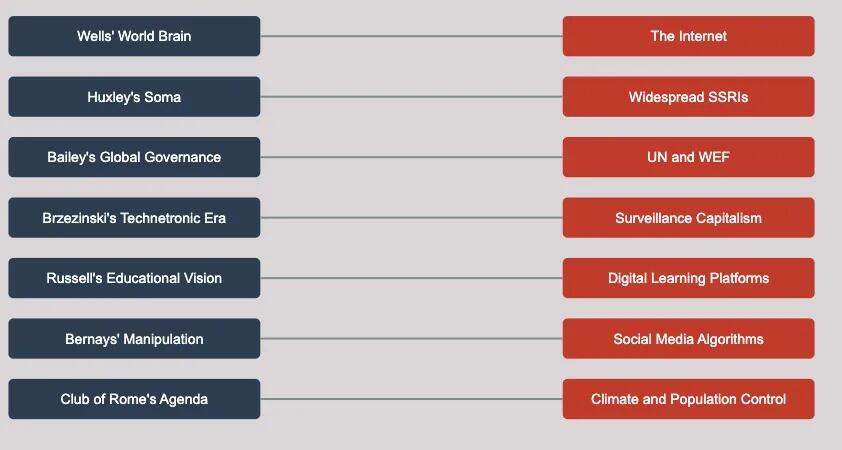

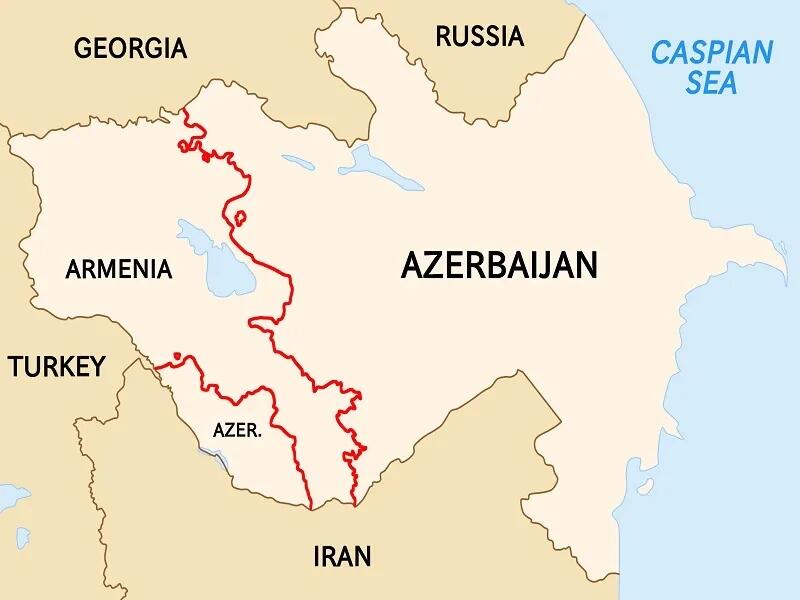
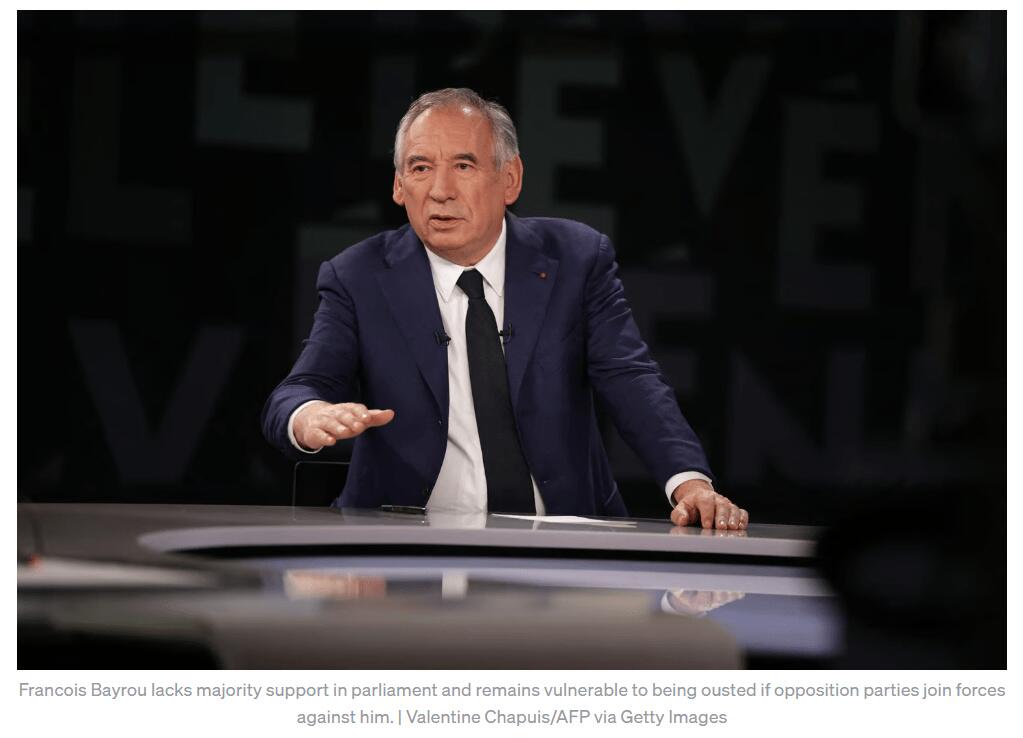
%20Meet%20the%20team%201.%20Kristin%20Crowley%20-%20First%20LGBTQ%20Fire%20Chief%20-%20439,772.jpg)




